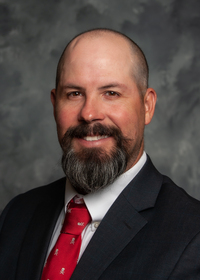Information Possibly Outdated
The information presented on this page was originally released on August 27, 2003. It may not be outdated, but please search our site for more current information. If you plan to quote or reference this information in a publication, please check with the Extension specialist or author before proceeding.
Delta boll weevils earn split decision
MISSISSIPPI STATE -- A closer look at the Aug. 22 results of the boll weevil referendum in the north Delta has changed the outcome from passing in both regions to passing only in Region IB.
A miscalculation of invalid ballots changed the percentage in Leflore, Quitman, Sunflower, Tunica and west Tallahatchie counties (Region 1A) from a 69 percent favorable vote to 65.95 percent, which is below the 66.667 percent required for passage. Votes from Bolivar, Coahoma and Washington counties (Region IB) supported the program with 68 percent of the vote.
Will McCarty, cotton specialist with the Mississippi State University Extension Service, said he is disappointed with the results because he considers the program essential for Mississippi to remain competitive in the cotton industry.
"I'm sure growers will have different reasons for voting against the referendum, but it usually comes down to money," McCarty said. "Some growers may think they can control boll weevils for less money than required for the program. They need to remember that the goal is not controlling; the goal is eradicating and staying competitive with other cotton-growing regions."
McCarty also said the cost of controlling weevils in the future will be significantly higher than in the past.
John Swayze, president of the Mississippi Boll Weevil Management Corp. board, said the board is reviewing all options for future actions.
"This miscalculation was a frustrating discovery, mainly because it's clear the majority of the growers support the program and all that it is accomplishing," Swayze said. "However, since state law requires 66 and two-thirds to be in favor, we are committed to that percentage."
Of the 1,643 ballots cast in the two regions, 34 were ruled invalid during the counting process at Farm Service Agency county offices. Reasons a ballot could be discarded include the lack of a readable signature on the back or a postmark date after the referendum.
"We are committed to eradicating boll weevils in Mississippi," Swayze said. "We believe it is essential for keeping our costs down and our state competitive with other areas that are weevil-free."
Growers were voting for the second time this summer on annual assessments of not more than $12 per acre. Swayze, a cotton grower in Yazoo County, said program managers expect actual assessments to be between $8 and $10 for the next couple of years, then drop even lower to $6 to $8 per acre.
The first referendum in June also had a majority in favor, but did not pass because it failed to received the 66 and two-thirds majority. The number of growers returning ballots in the August referendum increased by 84. More than 700 ballots were not returned.
"I firmly believed that a large number of the unreturned ballots represented growers who are in favor of the program," Swayze said.
The current eradication program started in Mississippi's eastern counties in 1997 and progressed westward annually. The north Delta regions voted to join the five-year program in 1999.


